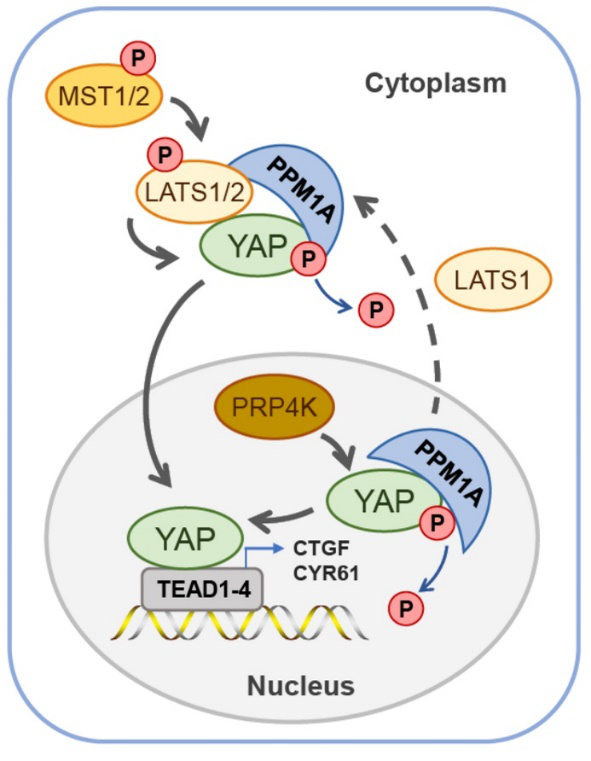On February 25th 2021, Xu laboratory published the research article entitled “The protein phosphatase PPM1A dephosphorylates and activates YAP to govern mammalian intestinal and liver regeneration” in PLoS Biology, which identified the first protein phosphatase of YAP, and revealed the key roles of both PPM1A and reverse phosphorylation of YAP in mammalian intestinal and liver regeneration.
The Hippo-YAP pathway responds to diverse environmental cues to manage tissue homeostasis, organ regeneration, tumorigenesis, and immunity. However, how phosphatase(s) directly target YAP and determine its physiological activity are still inconclusive. Here, we utilized an unbiased phosphatome screening and identified PPM1A/PP2Cα as the bona fide and physiological YAP phosphatase. We found that PPM1A was associated with YAP/TAZ in both the cytoplasm and the nucleus to directly eliminate phospho-S127 on YAP, which conferring YAP the nuclear distribution and transcription potency. Accordingly, genetic ablation or depletion of PPM1A in cells, organoids and mice elicited an enhanced YAP/TAZ cytoplasmic retention and resulted in the diminished cell proliferation, severe gut regeneration defects in colitis, and impeded liver regeneration upon injury. These regeneration defects in murine model were largely rescued via a genetic LATS1 deficiency or the pharmacological inhibition of Hippo-YAP signaling. Therefore, we identify a physiological phosphatase of YAP/TAZ, describe its critical effects in YAP/TAZ cellular distribution, and demonstrate its physiological roles in mammalian organ regeneration.

Figure: PPM1A targets YAP to regulate mammalian organ regeneration.
Dr. Ruyuan Zhou and Qirou Wu in Xu laboratory are the first authors, and Dr. Pinglong Xu is the corresponding author. This study was collaborated by Drs. Yan Zhang, Jun Qin, Tingbo Liang, Xin-Hua Feng and other colleagues, and sponsored by NSFC Projects (Distinguished Young Scholars and Key Project).
Link: https://journals.plos.org/plosbiology/article?id=10.1371/journal.pbio.3001122



